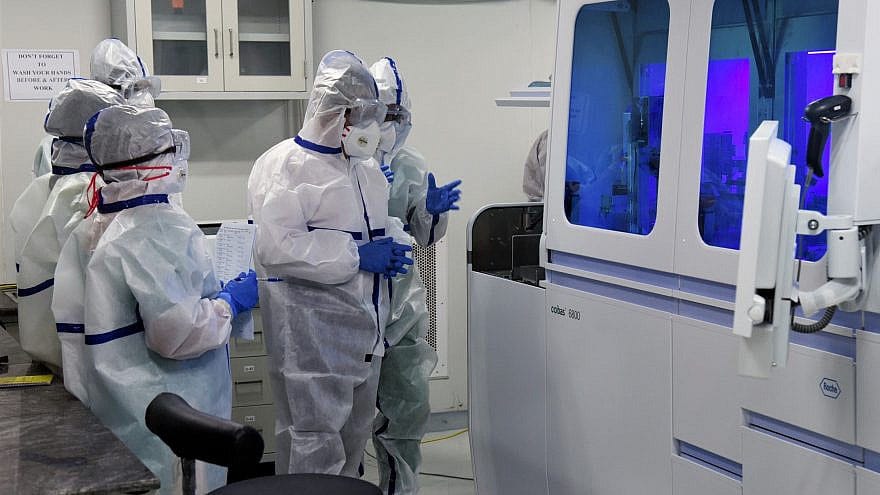 The Union Minister for Health and Family Welfare, Science and Technology and Earth Sciences, Dr. Harsh Vardhan dedicates the COBAS 6800 testing machine to the nation during his visit to the National Centre for Disease Control in Delhi, India, on May 14, 2020. Credit: Press Information Bureau, Government of India via Wikimedia Commons.
The Union Minister for Health and Family Welfare, Science and Technology and Earth Sciences, Dr. Harsh Vardhan dedicates the COBAS 6800 testing machine to the nation during his visit to the National Centre for Disease Control in Delhi, India, on May 14, 2020. Credit: Press Information Bureau, Government of India via Wikimedia Commons. (JNS) In response to the devastating coronavirus outbreak in India, now at the epicenter of the pandemic, IsraAID will provide urgently needed medical supplies to the beleaguered nation.
According to the World Health Organization’s weekly epidemiological update on COVID-19, India has reported some 2.7 million new cases as of April 27 and more than 15,000 deaths in the last week alone. (Since the pandemic began, there have been 17 million cases and nearly 200,000 deaths.)
Hospitals, which have become full, are in dire need of oxygen. On social media, images of mass cremations have gone viral.
“The scale of the crisis currently unfolding in India is simply overwhelming. As a humanitarian organization that has responded to COVID-19 in 17 countries up to now, we felt we could not just stand by,” said IsraAID CEO Yotam Polizer, whose organization will be sending medical equipment and supplies, including crucial oxygen concentrators, to health-care facilities and organizations in India.
According to a news release, IsraAID will also explore technological solutions to meet gaps in COVID-19 response and care, including data management, logistical support and vaccinations. It will also respond to the growing mental-health crisis left in the pandemic’s wake by offering self-care programs for frontline health workers to build community resilience and “help the helpers.”
To have the most impact, staff will be working with their partners on the ground in India, including health-care organizations and civil-rights groups, and with the Israel-India Forum at Tel Aviv University. Relationships between the two countries have grown notably closer in the past few years.
Noting that life in Israel returning to a pre-pandemic “normal,” said Politzer, “it is crucial to remember our shared responsibility to partner with communities facing the worst of it.”
“The pandemic,” he concluded, “will not be over for anybody until it is over for everybody.”























 More news and opinions than at a Shabbat dinner, right in your inbox.
More news and opinions than at a Shabbat dinner, right in your inbox.